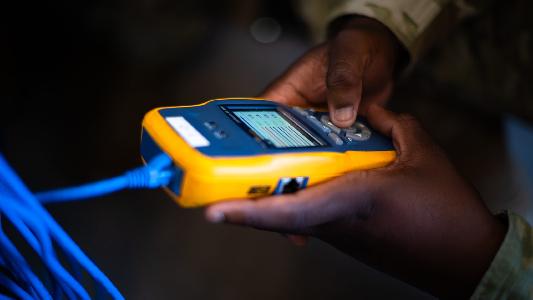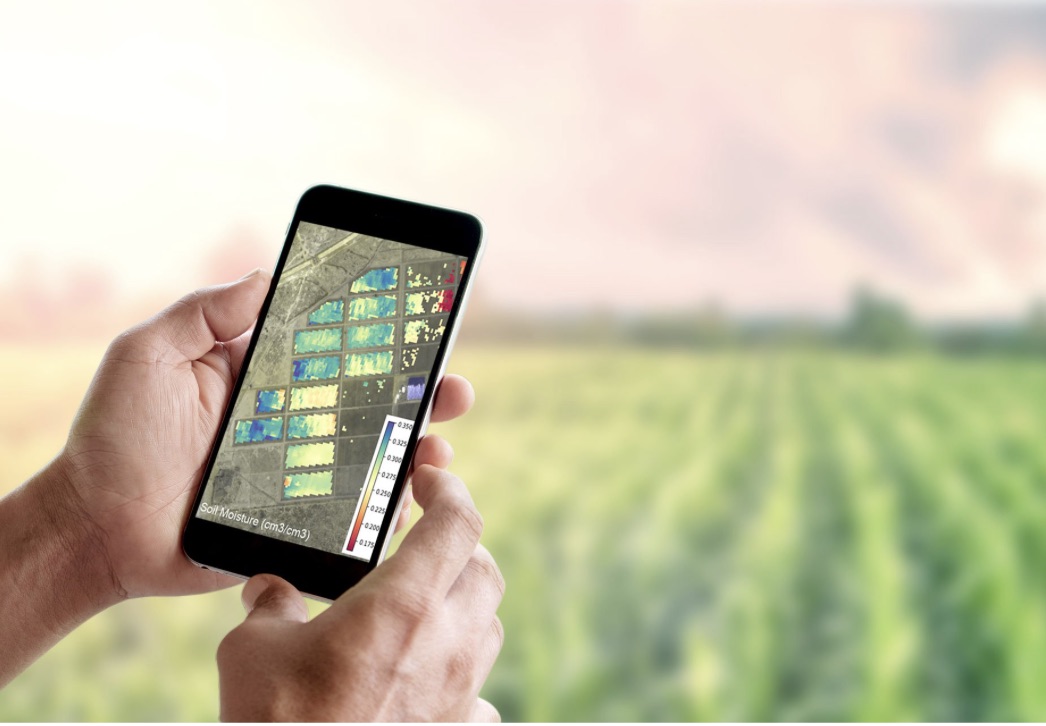Following last month’s eight-figure raise, DC geospatial intelligence company Hydrosat has another win for the summer.
The Dupont-based startup just acquired IrriWatch, a Netherlands-based irrigation management software company. IrriWatch, which was founded in 2019, helps farmers optimize growth and encourage higher crop yields, meshing with Hydrosat’s satellite-based analysis tech for soil temperature. With thermal monitoring, Hydrosat tracks water stress and provides imagery data.
“More than anything else, IrriWatch enables us to accelerate our time to market,” said Royce Dalby, Hydrosat’s president, in an email. “Hydrosat’s core capability is a farm management tool that greatly improves crop production. … IrriWatch already has a platform that is serving customers in 57 countries, and the combination of our capabilities will make Hydrosat’s product increasingly powerful and allow us to reach growers around the world.”
Dalby declined to specify the agreement’s terms, citing an “agreement with the seller” and noting that the transaction was made with a mix of equity in Hydrosat and cash.
IrriWatch’s team of software engineers, agronomists and hydrologists will merge with the Hydrosat team in the hopes of expanding the reach of both companies’ products for growers and agricultural businesses worldwide. Dalby clarified that the IrriWatch team will likely remain in the Netherlands, where they work in a city with a premiere agricultural research institution.
“The IrriWatch team will become part of Hydrosat’s data analytics division that is managed out of Luxembourg, though we expect the team to remain in the Netherlands,” Dalby said. “They are currently based in the city of Wageningen, which also hosts Wageningen University, one of the world’s top agricultural research centers. Close ties to the school will enable Hydrosat to continue recruiting first-class agronomists to our team of leading scientists.”
Like Hydrosat, IrriWatch uses satellite data. The company measures crop conditions like leaf and soil temps, moisture levels, water use and overall production. With algorithm tech, the company generates recommendations to boost production. IrriWatch also measures leaf nitrogen content to help manage fertilizer, help with carbon sequestration analysis and offers hyperlocal weather conditions.
By merging this with Hydrosat’s work, the two companies hope to offer an overall, end-to-end solution from the farm to the table.
“We recognize that climate change is the biggest threat to food security, and the United Nations recently warned of society’s ‘vampiric overconsumption’ of Earth’s water supply,” said Wim Bastiaanssen, CEO of IrriWatch, in a statement. “Our joining with Hydrosat enables us to work with leading experts and technology and gain access to high-resolution thermal imagery so we can deliver critical insights that advance our shared mission to feed the world and provide a transparent understanding of the water accounts of river basins.”
The IrriWatch deal puts Hydrosat on something of a roll. Earlier this year, Hydrosat raised $20 million in a Series A round led by Statkraft Ventures, with participation from Blue Bear Capital, Hartree Partners, OTB Ventures, Freeflow Ventures, Cultivation Capital, Techstars, Santa Barbara Venture Partners, Expon Capital and Hemisphere Ventures. The company also nabbed a grant from the Air Force to adapt its surface temp data and launched its Crop Yield Forecast product in a pilot.
Going forward, Dalby expects the company to roll out “a more advanced Irriwatch platform” by early next year, as well as finish developing its first pair of spacecraft for 2024.
“It’s a thrilling year for Hydrosat because we are building the capabilities that will drive tremendous growth for the company in 2024 and beyond,” Dalby said.
Before you go...
Please consider supporting Technical.ly to keep our independent journalism strong. Unlike most business-focused media outlets, we don’t have a paywall. Instead, we count on your personal and organizational support.
Join our growing Slack community
Join 5,000 tech professionals and entrepreneurs in our community Slack today!

The man charged in the UnitedHealthcare CEO shooting had a ton of tech connections

Northern Virginia defense contractor acquires aerospace startup in $4B deal

From rejection to innovation: How I built a tool to beat AI hiring algorithms at their own game



